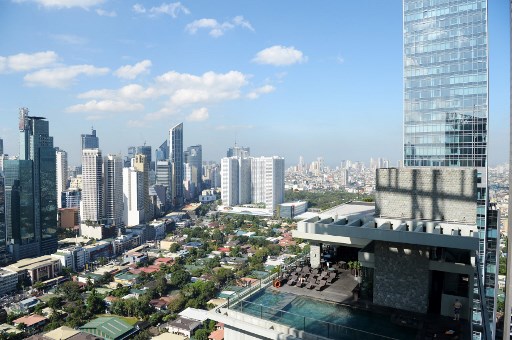
(Eagle News) – The Philippines ranked 95 in the Ease of Doing Business latest report of the World Bank, jumping 29 notches from the previous ranking of 124th out of 190 economies.
In the Doing Business 2020 Report, the Philippines was among the 190 economies included by the World Bank in its study.
The Philippines got an Ease of Doing Business (EODB) score of 62.8 in the 2020 report, an improvement over its grade in the previous year of 57.68, according to the Department of Finance.
The Philippines significantly improved its ranking in three areas as compared to the previous year. These areas are in Dealing with Construction Permits (from 94th to 85th, with EODB score of 70, up from 68.6); Protecting Minority Investors (132nd to 72nd, with EODB score of 60 from 43.3) and Getting Credit (from 184th to 132nd; with EODB score of 40, a dramatic rise from 5,0).
The Philippines is included in the list of 42 economies that improved its EODB score the most, as it was able to implement regulatory reforms in 3 or more of the 10 indicators included in this year’s aggregate EODB score, the 2020 report said.
Finance Secretary Carlos Dominguez III said he is also upbeat on the Philippines’ chances of further raising next year its already much-improved ranking in the latest World Bank Doing Business report once a new law expanding the access of micro, small and medium enterprises (MSMEs) to lending facilities is fully implemented.
-Even higher ranking in sight-
Dominguez said Republic Act (RA) No. 11057 or the Personal Property Security Act (PPSA) will help propel the Philippines to a higher ranking in the Doing Business 2021 report with the law’s implementing rules and regulations (IRR) soon to take effect.
“With the PPSA in place, MSMEs can register their movable assets such as inventory with the Land Registration Authority (LRA) and use those assets as collateral in accessing formal sources of financing,” Dominguez said. “This is among the reforms we are pursuing to further improve our business climate and empower small entrepreneurs.”
Citing the report, Finance Undersecretary Gil Beltran said the Philippines: 1) made starting a business easier by abolishing the minimum capital requirement for domestic companies; 2) made dealing with construction permits easier by improving coordination and streamlining the process for obtaining an occupancy certificate; and 3) strengthened minority investor protections by requiring greater disclosure of transactions with interested parties and enhancing director liability for transactions with interested parties.
In other indicators, the Philippines ranked 32nd in Getting Electricity; 120th in Registering Property; 95th in Paying Taxes; 113th in Trading Across Borders; 152nd in Enforcing Contracts; and 65th in Resolving Insolvency, he said.
The Doing Business reforms affecting all sets of indicators included in the 2020 report were implemented from May 2018 to May 2019.
Doing Business measures the processes for business incorporation, getting a building permit, obtaining an electricity connection, transferring property, getting access to credit, protecting minority investors, paying taxes, engaging in international trade, enforcing contracts, and resolving insolvency.
It also measures regulation on employing workers and contracting with the government, which are not included in the 2020 EODB score and ranking.
According to the World Bank, the Doing Business 2021 Report will include the “contracting with the government” indicator set in the calculation of the EODB ranking.
Dominguez said the Personal Property Security Act (PPSA) was included among the reforms presented to the World Bank’s Doing Business team for the 2020 report, but the law’s IRR were yet to be completed at the time of submission.
In July, the Department of Finance (DOF) held a public consultation and allowed the posting online of feedback and comments on the PPSA’s draft IRR.
The final IRR of the PPSA were already sent for publication in the Official Gazette. The implementation of the law has been deferred until the establishment and operation of an electronic registry where notices of a security interest and a lien in personal property may be registered.
The issuance of the law’s IRR is necessary to enable the Department of Budget and Management (DBM) to release funds for its implementation, including the budget for the registry.
(with a DOF release)








